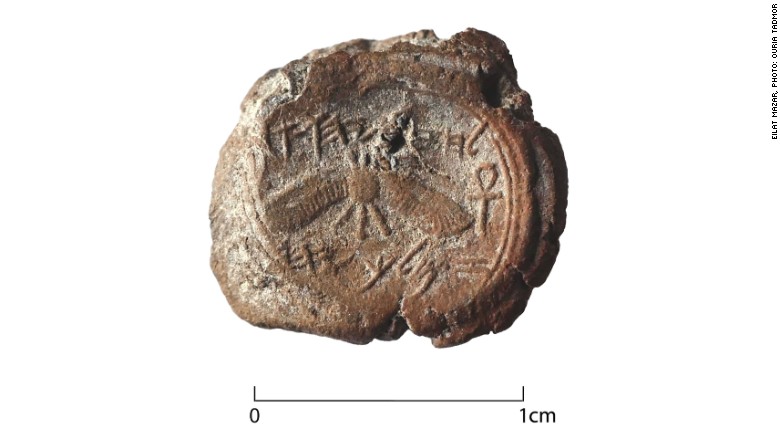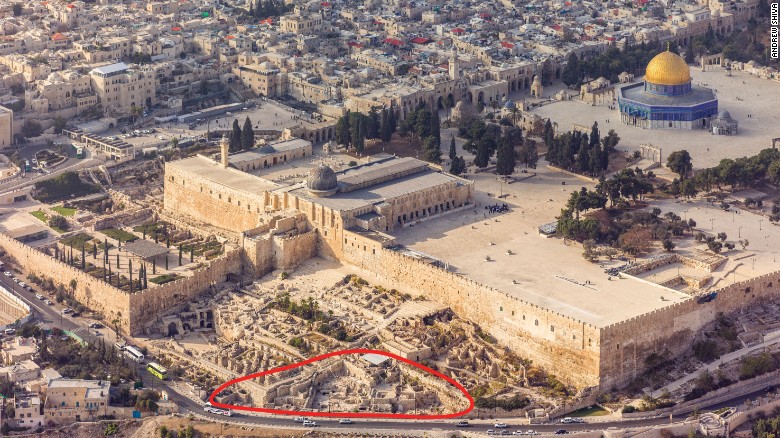A dump site is the last place you would expect to find an 8th century B.C. seal for a papyrus document signed by one of the kings of Judah.

Perhaps that's why it has taken 2,700 years for the piece of clay inscribed with King Hezekiah's seal to be discovered in Jerusalem.
It is believed to be the first-ever seal -- also referred to as a "bulla" -- from an Israeli or Judean King to be discovered by archaeologists.
"The seal of the king was so important. It could have been a matter of life or death, so it's hard to believe that anyone else had the permission to use the seal," Eilat Mazar, who directs excavations at the City of David's summit, told CNN.
"Therefore, it's very reasonable to assume we are talking about an impression made by the King himself, using his own ring.
"This the greatest single item I have ever found," added Mazar -- a third generation archaeologist.
The oval bulla -- which is 0.5 inches wide -- was discovered by a team from the Hebrew University of Jerusalem.
Led by Mazar, the team were excavating an ancient dump in the Silwan neighborhood beside the wall that surrounds Jerusalem's Old City.
The site itself, along with the nearby city of David, is contentious, because it is an Israeli archaeological dig in a Palestinian neighborhood in East Jerusalem. Critics say the dig is politically motivated to extend Jewish claims over East Jerusalem and the Old City: archaeological finds become historical justifications.
The seal is believed to have been discarded from a royal building, with the rubbish.
The impression on the clay bears an inscription in ancient Hebrew script that translates as: "Belonging to Hezekiah [son of] Ahaz king of Judah."
It features a two-winged sun, with wings turned downward, flanked by two ankh symbols symbolizing life.
Other bullas bearing the name of King Hezekiah have been seen on the antiquities market. However, the others are not as important because they were not found by archaeologists and therefore may not be genuine, according to Mazar.
What we know about King Hezekiah
"The bible describes King Hezekiah as one of the most important kings after King David," said Mazar.
"He was rich, daring, stood up against Assyrians. A very impressive king," she added.
King Hezekiah -- who reigned from about 727 to 698 B.C. -- is certainly portrayed favorably in the Bible. The Book of Kings II 18:5 says of Hezekiah: "... after him was none like him among all the kings of Judah, nor among them that were before him."
It has been claimed that Hezekiah dedicated his reign to the reversal of the "idolatry" of his father. However, Hezekiah's newly discovered private seal, which bears the name of his father, suggests that Hezekiah valued this link.


No comments:
Post a Comment